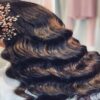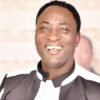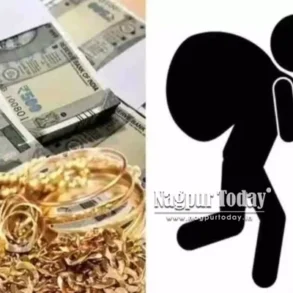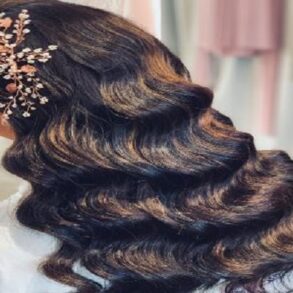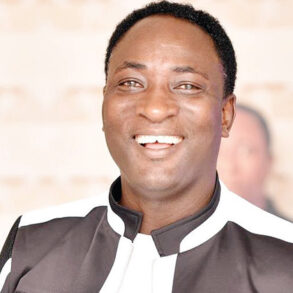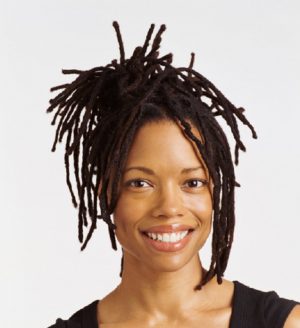 Ed. note: This is the latest installment in a series of posts on motherhood in the legal profession, in partnership with our friends at MothersEsquire. Welcome Angela Mackie-Rutledge back to our pages. Click here if you’d like to donate to MothersEsquire.
Ed. note: This is the latest installment in a series of posts on motherhood in the legal profession, in partnership with our friends at MothersEsquire. Welcome Angela Mackie-Rutledge back to our pages. Click here if you’d like to donate to MothersEsquire.
Two weeks ago, I walked into a courtroom that was in recess, looking for my judge. I clerk for the senior judges, so most of them aren’t too difficult to catch up with. As I entered the courtroom, I didn’t recognize any faces. More pertinently, none of the faces recognized me. One of the Biglaw attorneys, a 40-ish looking woman with curly red hair — let’s call her Courtroom Karen — asked if she could help me. Now I was thinking, “This isn’t how things work! I’m the one with the staff badge and she was there on a visitor’s pass,” but I let it slide because I was in a hurry.
“Yeah, I’m looking for Judge A,” I said to her in an unconcerned tone as I scanned the large courtroom for my judge.
Karen looked at me, then at my staff ID, then back at me and sneered in what came across to me as her I’d-like-to-speak-to-the-manager voice, “This isn’t his courtroom! Judge A retired.”
Unfazed, I looked back at Courtroom Karen and told her, flatly, “He took on senior status last month. He was in this courtroom this morning. I’m his law clerk.”
Karen fumbled with her words a bit, “Oh well, um, I didn’t know.”
I turned around and left before she could utter another word. That interaction left me feeling both desolate and frustrated. Adding insult to injury? All this during Black History Month, too!
I’d like to think that interaction was unique but when it comes to clerking at the court, despite my professional attire, no one assumes I’m the law clerk. I’ve been asked if I was the court reporter, court officer, tipstaff, interpreter, witness, and defendant. I’ve even been asked to leave the courtroom. To the attorneys, I’m just another nameless, faceless court worker whho they don’t have to bother dealing with … until they do.
Piggybacking on that TikTok trend, “Yes, I’m a judicial law clerk. Of course, attorneys don’t bother introducing themselves to me until they realize I’m the one making recommendations on their motions to the judge.”
My experience of being called out as anything but the law clerk happens at EVERY SINGLE TRIAL I’m on. My judges routinely have to say, “No, she’s my law clerk.” Despite working in a diverse city, this scenario plays out week after week.
Once I’m introduced as the law clerk, suddenly the attorneys change their tune. They want to introduce themselves. They ask for my email address. They give me their business cards. Over and over again, this happens every single trial.
I’m dressed up nicely just like everyone else. So it made me wonder … Is it the hair? Do I not look “professional” enough. Am I getting these reactions because I’m a Black woman with unapologetic natural hair? Or is simply being a Black face in a typically white space enough to trigger that reaction?
I’m far from the only Black woman who has endured these courtroom biases. In 2021, Barrister Alexandra Wilson tweeted, “Today, I was assumed to be a defendant 3 times and a journalist once. There must be something about my face that says ‘not barrister’ because I am literally wearing a black suit like everyone else.”
This is my reality. Such “mistakes” or microaggressions can deeply affect one’s mental health and be very taxing. In a profession already riddled with impostor syndrome, the notion that as a Black woman I must not be the law clerk or attorney is further emphasized by the regular assertions that I must hold a different profession, rather than the judicial law clerk one I already hold.
In 2022, I, along with the Black Law Students Association at George Mason University Antonin Scalia Law School, held the Black Hair Big Law Symposium. It was a global meeting of the minds where we discussed whether Black natural hair is compatible with working in Biglaw.
As part of the symposium, I conducted research and quantitative analysis on attitudes on Black hair for individuals working in the legal field: attorneys, paralegals, law clerks, etc. We asked questions such as, “How do you wear your hair to work?” and “Has a colleague or client ever remarked negatively about your hair?” You can read all about this survey in Black Hair Big Law (Part II): The Harshest Critics Of Black Attorneys’ Hair and the follow up article Black Hair Big Law (Part III): ‘Professionalism,’ Work Hair, And Interview Hair.
The last question asked, “Is there anything you’d like to tell us?” Wow, did we get a big response here!
What I found most jarring in the responses were the revelations that even within the judiciary, there were troubling reflections of prejudice. Judges, who should stand as bastions of fairness, were not exempt from displaying obvious bias against natural styles. For example, one attorney recalled a judge who critically commented on her wig. She wrote, “I had a Caucasian judge comment that my hair was wild and eccentric when I had a wig on.”
Another lawyer discussed that she felt it necessary to wear straightened hair to circumvent a common presumption faced by many Black attorneys — being mistaken for the court reporter or even the defendant instead of being assumed to be the attorney: “Depending on the court, I used to change my hair. As a Black woman in many jurisdictions, the court assumes I am either a party to the case or the court reporter. So I would style my hair differently and in fact, dress differently to set myself apart or rather to attempt to set myself apart.”
A third trial attorney observed that her hair seemed to be scrutinized as much as her legal argument. A fourth trial attorney recalled preparing for an oral argument before the First Circuit. “[I was] trying to decide if I should keep my braids in or wear some other style. I decided I needed to spend more time preparing for my argument than dealing with my hair and left the braids in. I realized that after years of attending arguments with my colleagues I had never seen a Black woman at all so either way I would stick out. Fortunately, I won my argument but if I had lost, I would have wondered if my hair had anything to do with the decision.”
Even Moot Court has presented issues for Black law students. “In law school, when in mock trial competitions my hair was judged and questioned by my coaches.”
A fifth trial attorney commented, “I never want my appearance to be a distraction, hair included. Practicing in courts in which mostly white men practice and preside, makes me think about how my appearance may affect the perceived effectiveness of my advocacy.”
Dealing with daily biases, encountering Courtroom Karens, facing routine microaggressions, and striving for genuine acknowledgment means that clerking while Black ain’t easy.
The insights I gained from organizing and leading the Black Hair Big Law Symposium have been enlightening, enhancing my appreciation for my natural hair. I am thankful for the chance to wear my natural coily hair to work, free from the pressure to straighten it.
I’d like to extend my gratitude to George Mason’s Black Law Students Association and the American Bar Association. A special thanks to MothersEsquire for making this Black Hair Big Law Series possible on Above the Law.
 Angela Mackie-Rutledge is a dual British & American citizen and the mum of twin boys and a cheeky singleton girl. She holds a BFA from New York University, an MSc from the University of Brighton (UK), and an LLB from the University of Law in London. Angela is a former Mastermind contestant where her specialty topic was Morrissey, his life, and solo career. She was a winner of the 2017 Choose Law Full Fee Scholarship which gave her a full scholarship to attend law school. She is currently an LLM candidate at George Mason University Antonin Scalia Law School and graduated in December 2022. She can be reached on LinkedIn.
Angela Mackie-Rutledge is a dual British & American citizen and the mum of twin boys and a cheeky singleton girl. She holds a BFA from New York University, an MSc from the University of Brighton (UK), and an LLB from the University of Law in London. Angela is a former Mastermind contestant where her specialty topic was Morrissey, his life, and solo career. She was a winner of the 2017 Choose Law Full Fee Scholarship which gave her a full scholarship to attend law school. She is currently an LLM candidate at George Mason University Antonin Scalia Law School and graduated in December 2022. She can be reached on LinkedIn.
This post was originally published on this site be sure to check out more of their content.


